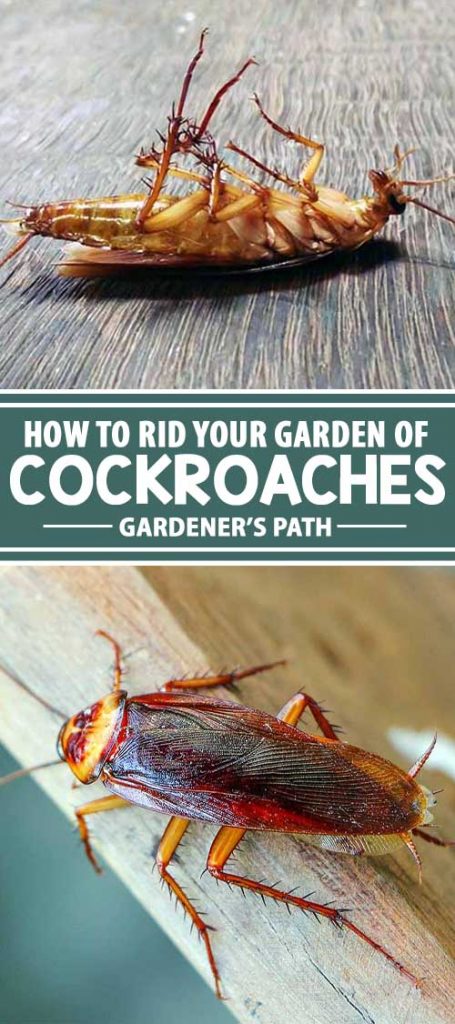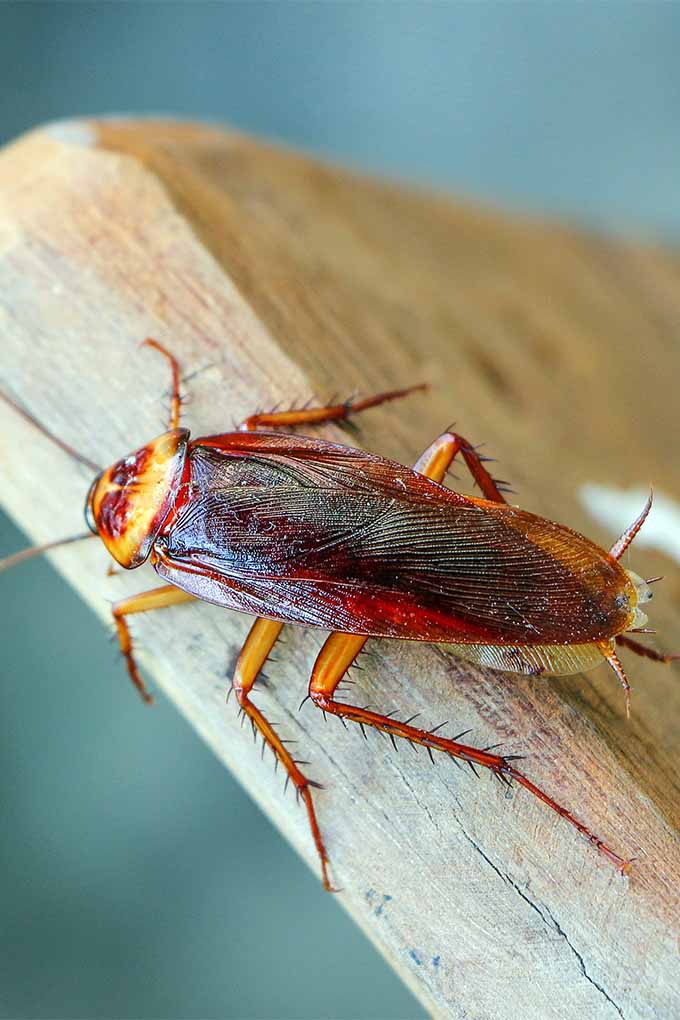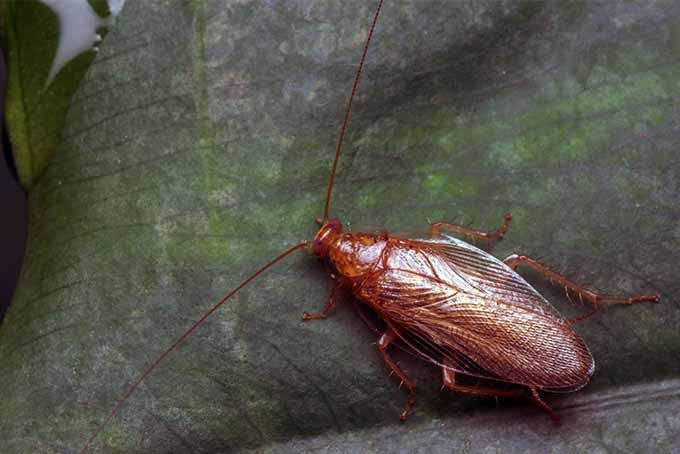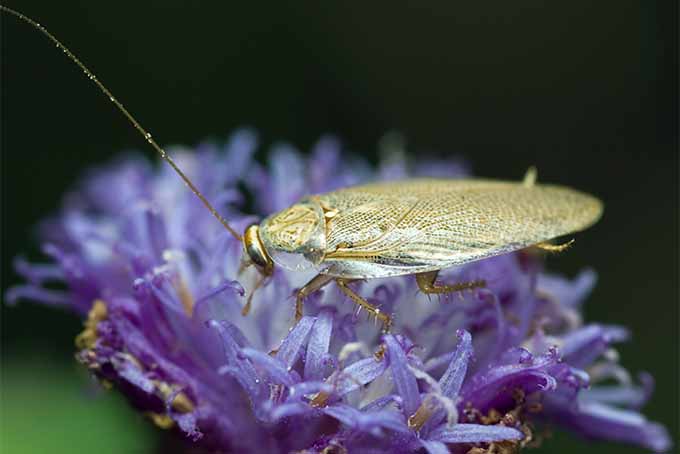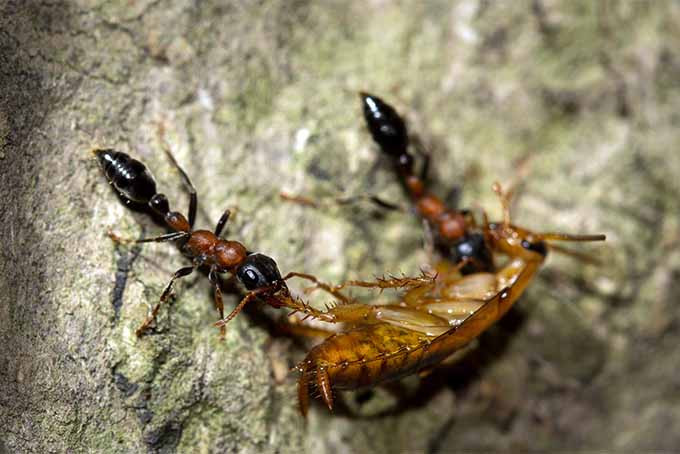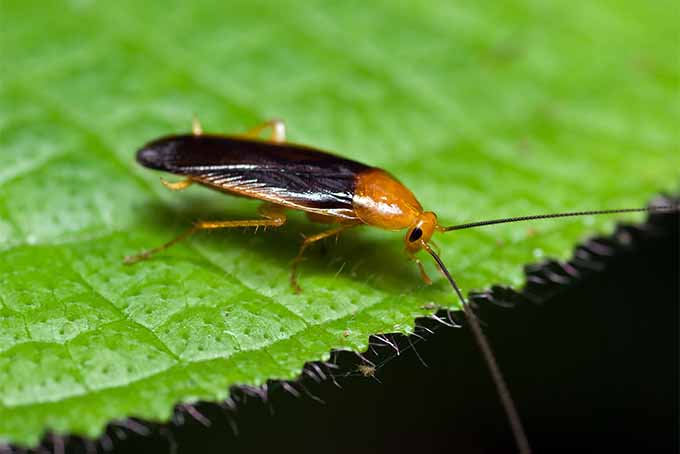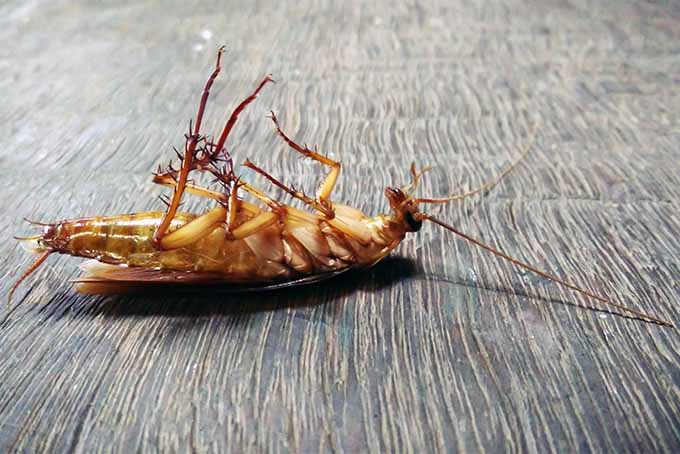Cockroach! Did an involuntary shiver just go through your body? You’re not alone. The very mention of these vile pests can send folks running for the hills. And an actual glimpse of one might have the more skittish among us performing stunning feats of athletic strength and agility as we desperately leap onto couches or countertops to avoid these fast-moving, creepy critters. More than 55 species of cockroach populate our lands, many of them “gifts” from Asia and Africa, having come over on trading vessels.
In some parts of the United States, cockroaches are called palmetto bugs, because of these insects’ tendencies to hide under the leaves of palm trees. Other names for the bugs include waterbug, Croton bug (named for the water supply system of New York City but not to be confused with the croton plant), and Bombay canary. Whatever you call them, they’re a pest in our gardens, and heaven forbid they get into our homes — they’re an even worse scourge there. Let’s explore some ways to avoid and get rid of them.
Hang up a “No Vacancy” Sign
Your first line of defense is to avoid attracting them in the first place. Roaches like moist, dark places. Of course they do. Also unsurprising is the fact that they’ll eat just about flipping anything organic, including each other. Gross. Anyway, keep garden areas tidy and free of excess clutter and refuse that might provide a home for these pests. Keep an eye on mulch, turning it or replacing it often to dissuade the bugs.
For those of us who enjoy a winter fire, wood piles are inevitable. But store your logs in a cool, dry location far away from the house, and keep an eye out for insect infestations. And compost! Compost piles are to roaches what a Vegas buffet is to a hungover gambler. Paradise! Build your compost pile well away from your house, cover it, and turn it often to discourage roaches from taking up residence in your muck. If your garbage pails are stored near your garden, make sure they’re tightly sealed. Ditto pet food containers.
Natural Eradication
While it’s true that many species are more interested in human food and, oh, any kind of feces than they are in your garden plants, there are some species that will eat plants. And even if they don’t eat your plants, you don’t want them in your yard. Why not? Because the next step is an invasion of these pests into your home, where they’ll spread all kinds of nasty germs and eat your food and startle the socks off late-night, refrigerator-raiding humans.
For a natural way of getting rid of these malevolent marauders, try dusting diatomaceous earth around your plants. The powder’s tiny particles are sharp and have the effect of miniature razor blades on insect respiratory systems. Bwahahahaha! For those of us in the South who are plagued by the slightly less vile but equally annoying fire ants, we have a choice between two evils. While fire ants are loathsome tormentors in their own right, they do offer the benefit of helping to control cockroaches, by killing and eating them. So, pick your nasty bug.
On the other hand, our lovely friends the birds also like a tasty cockroach morsel, so create a welcoming environment for your avian friends by putting out seed.
Time to Bring Out the Big Guns?
If natural eradication methods aren’t doing the trick, you may have to turn to a more powerful insecticide?
Orcon Live Trichogramma Parasitic Wasp Eggs You can purchase any of a number of poisonous gels, sprays, or sticky traps that contain insecticides such as fipronil or imidacloprid. Some may contain boric acid, which is derived from the mineral boron, and is a notoriously effective cockroach killer.
Keep in mind, however, that using these commercial products in the garden can be tricky, because you run the risk of harming beneficial insects or pets.
Combat Bait Stations If you go with chemicals, check labels to be sure outdoor use is safe.
Legs Up!
To normal human beings who aren’t entomologists or Richard Schweid, author of The Cockroach Papers: A Compendium of History and Lore, the only good cockroach is a dead cockroach. To ensure you’re not pestered by these pests, first practice clean garden habits to deter them. And if they nevertheless insist on taking up residence in your yard, try some diatomaceous earth or other natural killers.
As a last resort, you can procure poison, but use only with the utmost caution so that beneficial insects, pets and humans aren’t harmed. In the comments section below, tell us how you banish these vile vermin from your outdoor spaces. And if cockroaches have also invaded your house, check out the story on our sister site, Foodal, about ridding your abode of these contemptible creatures. Product photos via Basic Books, Combat, and Orcon,. Uncredited photos: Shutterstock.
